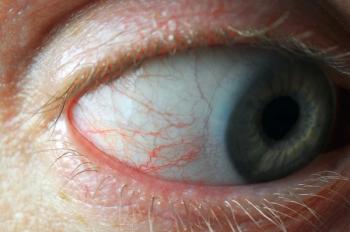
- September/October digital edition 2025
- Volume 17
- Issue 05
The important role daily disposables play in your practice
Sheila Setork, OD, gives insight and advice on how to optimize daily disposables in order to improve retention rates and introduce more patients to contact lenses.
For Sheila Setork, OD, the comfort of the patient comes first when considering 1-day contact lenses. That is why the modern design of daily disposables plays a fundamental role in her pitch to patients to try out contact lenses, especially for those with active lifestyles or excessive screen time.
“I usually do like to explain that these lenses are designed now for patients to feel more comfortable. They’re also more breathable,” Setork, who practices in the Chicago area of Illinois, said. “Then I really just try to take into account what their main complaint is, and a lot of times it’s dryness, it’s allergies. We know a lot of these issues can be alleviated with the daily disposables.”
Setork said that factors to consider for patients with contact lenses include vision, comfort, and the physiological response of the eye to the lens. She added that dailies’ ability to help with comfort can make a difference in retention rate, as lack of comfort is the No. 1 reason patients discontinue contact lens use.
Additionally, Setork said that in her 14 years of practicing, she has seen a younger demographic show an interest in contact lenses, particularly to wear while playing sports. She stated that daily disposables provide an inviting option for these younger patients, as their parents are often open to them as a first-time option for contact lenses. With students spending an average of 44% of their waking hours looking at screens, daily disposables are also a good option to combat the ocular effects of excessive screen time.1
Getting patients on board can be as simple as talking the benefits and ease of wearing dailies. Additionally, Setork said that regularly checking in with patients wearing 2-week and monthly lenses can lead to opportunities to switch to dailies.
“I would say most patients are an ideal candidate, but a lot of times if they have any issues with their 2-week or monthly [lenses],” Setork said. Having previously worked at an ophthalmology practice, she recalled the extensive treatment and meibomian gland analysis that patients with dry eye would receive. “It was always part of it, to have a patient come over to contact lenses, switch to the dailies, and then go back and continue their therapy and their treatment process over the dry eye clinic, because we still want to get to the heart of that. It’s just such a straightforward way to get rid of so many of those issues, and sometimes it’s all the patient needs.”
As a CooperVision Advisory Board member, Setork said that the company’s comprehensive selection of dailies also provides ease in recommending lenses to patients, offering toric daily and multifocal daily options. FDA-approved myopia control lenses are also offered as a daily disposable option for ideal candidates.
Success with 1-day lenses
Globally, daily disposables have remained a successful option for patients. All markets in 20 countries evaluated between 2000 and 2023 saw daily disposable lens fitting increase in similar amounts, according to a 2024 study.2 “The overall success of daily disposable lenses is likely due to multiple factors,” the study authors, led by Philip B. Morgan, PhD, BSc(Hons), MCOptom, FAAO, FBCLA, of the University of Manchester, stated. “Daily disposable lens wear obviates care solution-related problems and significantly reduces the risk of developing corneal infiltrative events. Fewer ocular complications in general have been reported with daily disposable lenses compared with reusable lenses. Practitioners can maintain an inventory of daily disposable lenses, which facilitates timely and accurate lens fitting as well as the immediate dispensing of lenses for short-term wearing trials, prior to offering an ongoing lens supply. Streamlined payment systems can be set up, with lens supply matching the recommended frequency of aftercare visits.”
References:
Back-to-school just got good. Alcon. Accessed August 22, 2025.
https://www.myalcon.com/professional/contact-lenses/daily/precision1/back-to-school/#3169006954-1032721070 Morgan PB, Efron N, Woods CA, Jones D, Jones L, Nichols JJ. International trends in daily disposable contact lens prescribing (2000-2023): An update. Contact Lens and Anterior Eye. 2024;47(6):102259.
https://doi.org/10.1016/j.clae.2024.102259
Articles in this issue
about 2 months ago
Reflex for stabilizing vision develops without sensory inputNewsletter
Want more insights like this? Subscribe to Optometry Times and get clinical pearls and practice tips delivered straight to your inbox.















































